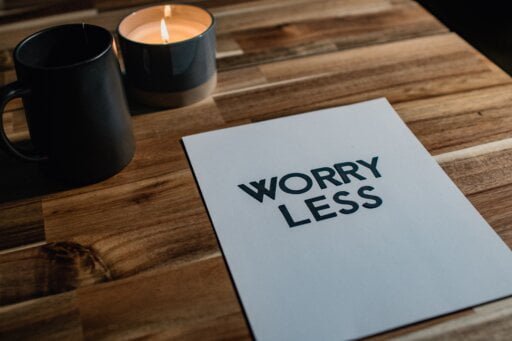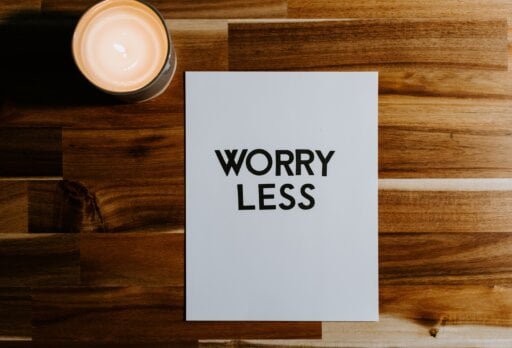Feeling shortness of breath can be a distressing experience, but before jumping to conclusions or assuming the worst, it’s important to consider all possible causes. In this article: “How To Tell If Shortness Of Breath Is From Anxiety”, you’ll discover simple yet effective ways to identify if your shortness of breath is a result of anxiety. By understanding these telltale signs, you can gain a better understanding of your body’s responses to stress and begin to navigate through moments of anxiety with ease. So, take a deep breath and let’s dive into the world of anxiety-induced shortness of breath.
Physical Symptoms of Anxiety
Rapid Breathing
During episodes of anxiety, you may experience rapid breathing or hyperventilation. This is often characterized by quick, shallow breaths that can leave you feeling breathless and overwhelmed. Your body’s natural response to stress, such as anxiety, is to breathe faster in order to supply more oxygen to your muscles. However, during times of heightened anxiety, this rapid breathing can lead to discomfort and a sensation of not being able to catch your breath.
Tightness in the Chest
Another physical symptom of anxiety is a tightness or heaviness in the chest. This sensation can feel as if someone is sitting on your chest or like you’re being constricted by a tight band. The feeling of tightness in the chest can be worrisome, leading to increased feelings of anxiety. It’s important to remember that anxiety-induced chest tightness is usually temporary and not a sign of a serious medical condition.
Lightheadedness
Feeling lightheaded or dizzy is a common symptom of anxiety. It may feel as if you’re about to faint or lose control. This can be a distressing experience, but it’s important to recognize that lightheadedness is often a result of the body’s stress response. When you’re anxious, your body may redirect blood flow away from the brain, leading to these sensations. These symptoms typically subside as your anxiety levels decrease.
Hyperventilation
Hyperventilation is a common physical symptom of anxiety and can occur during a panic attack or high-stress situation. It involves rapid, shallow breathing, and often leads to feelings of lightheadedness, dizziness, and tingling sensations in the hands or face. Hyperventilation can further exacerbate anxiety, creating a cycle of panic and distress. Recognizing and managing hyperventilation is key to reducing anxiety-induced shortness of breath.
Psychological Symptoms of Anxiety
Excessive Worry
Excessive worry is a hallmark psychological symptom of anxiety. When you’re experiencing anxiety, your mind may become consumed with intrusive thoughts and fears, even if they may seem irrational. This constant worrying can often lead to physical symptoms, such as shortness of breath, as your body’s stress response is activated. Recognizing excessive worry and implementing strategies to manage it can help alleviate anxiety-induced shortness of breath.
Feeling Restless or On Edge
Feeling restless or on edge is a common psychological symptom of anxiety. It’s characterized by an inability to relax, a constant sense of unease, and difficulty concentrating. This heightened state of arousal can lead to increased tension in the body, including shallow breathing and shortness of breath. Learning to recognize and manage restlessness can help reduce anxiety and alleviate associated physical symptoms.
Fear of Losing Control
One of the psychological symptoms of anxiety is a fear of losing control. This can manifest as a fear of having a panic attack or feeling overwhelmed by intense emotions. This fear can trigger physical symptoms such as shortness of breath, as your body reacts to the perceived threat. Recognizing and addressing this fear is crucial in managing anxiety-induced shortness of breath.

Differentiating Anxiety-Induced Shortness of Breath
Occurrence During Periods of Anxiety
If your shortness of breath consistently occurs during periods of anxiety or heightened stress, it is likely a sign that anxiety is the underlying cause. Pay attention to the timing and triggers of your breathlessness, as this can help differentiate anxiety-induced shortness of breath from other potential causes.
No Other Underlying Medical Conditions
To differentiate anxiety-induced shortness of breath from other potential causes, it is important to rule out any underlying medical conditions. Consulting with a healthcare professional can help determine if there are any other health issues contributing to your symptoms. Make sure to communicate your experiences with anxiety and any relevant medical history to get a comprehensive evaluation.
Relief with Anxiety Management Techniques
One key way to differentiate anxiety-induced shortness of breath is to observe whether it is relieved or decreased with anxiety management techniques. If breathing exercises, relaxation techniques, or other anxiety management strategies are effective in reducing your shortness of breath, it suggests that anxiety is the primary cause. However, if your symptoms persist or worsen despite these techniques, it is important to consult with a healthcare professional for further evaluation.
Medical Examination
Physical Examination
During a medical examination, your healthcare provider will perform a physical examination to assess your overall health. They will listen to your lungs, check your heart rate, and evaluate for any signs of respiratory distress. This examination can help identify any physical factors contributing to your shortness of breath and aid in differentiating anxiety-induced symptoms from other potential causes.
Chest X-Ray
A chest X-ray may be ordered to assess the structure and condition of your lungs and chest. This can help identify any abnormalities or issues that may be causing your shortness of breath. While anxiety does not typically show up on X-rays, this test can assist in ruling out other potential causes for your symptoms.
Lung Function Tests
Lung function tests, such as spirometry or a peak flow test, may be administered to assess how well your lungs are working. These tests measure your lung capacity and airflow, providing valuable information about your respiratory function. Lung function tests can help determine if there are any underlying lung conditions contributing to your shortness of breath.
Cardiac Tests
In some cases, your healthcare provider may recommend cardiac tests to evaluate your heart’s function and rule out any cardiac-related causes contributing to your symptoms. These tests may include an electrocardiogram (ECG or EKG), stress test, or echocardiogram. Cardiac issues, though less common, can sometimes manifest as symptoms of anxiety, so it is important to comprehensively assess all possible causes.

Anxiety Management Techniques
Deep Breathing Exercises
Deep breathing exercises can help reduce anxiety-induced shortness of breath. By taking slow, deep breaths and focusing on your breath, you can activate the body’s relaxation response, counteracting the rapid, shallow breathing associated with anxiety. Practice diaphragmatic breathing, where you breathe deeply into your abdomen, rather than shallow chest breathing. This technique can help reduce anxiety and promote a sense of calm.
Progressive Muscle Relaxation
Progressive muscle relaxation is a technique that involves tensing and then releasing different muscle groups in your body. This practice helps relieve muscle tension often associated with anxiety and promotes relaxation. By systematically tensing and releasing each muscle group, you can reduce overall physical tension, including shallow breathing caused by anxiety.
Cognitive Behavioral Therapy (CBT)
Cognitive Behavioral Therapy (CBT) is a form of talk therapy that can be effective in managing anxiety. CBT focuses on identifying and challenging negative thought patterns and developing healthier coping strategies. Through CBT, you can learn to recognize and reinterpret anxious thoughts, reducing overall anxiety levels and associated physical symptoms.
Medication
In some cases, medication may be prescribed to help manage anxiety. Antidepressants, anti-anxiety medications, or beta blockers may be recommended depending on your specific needs. These medications can help reduce anxiety symptoms, including shortness of breath. It is important to consult with a healthcare professional to determine the appropriate medication and dosage for your situation.
Seeking Professional Help
Consulting with a Mental Health Professional
If you’re experiencing frequent or severe symptoms of anxiety, it is advisable to consult with a mental health professional. A psychologist, psychiatrist, or therapist can provide valuable support and guidance in managing your anxiety. They can help you develop personalized strategies and provide therapeutic interventions to alleviate anxiety-induced shortness of breath.
Getting a Comprehensive Medical Evaluation
To ensure a comprehensive evaluation of your symptoms, it may be beneficial to seek a medical evaluation. By consulting with a healthcare professional, you can address any potential underlying medical conditions contributing to your shortness of breath. They can also work in collaboration with mental health professionals to provide a holistic approach to your care.

Recognizing Triggers and Managing Anxiety
Identify Triggers
Identifying triggers for your anxiety can be key in managing symptoms, including shortness of breath. Common triggers may include certain situations, people, or thoughts. By identifying specific triggers, you can work on developing strategies to minimize their impact and reduce anxiety. This knowledge will empower you to take proactive steps in managing your anxiety-induced shortness of breath.
Exercise Regularly
Regular exercise has been shown to have a positive impact on anxiety and overall mental well-being. Engaging in physical activity helps release endorphins, which boost mood and reduce stress. Exercise can also distract your mind from anxious thoughts and help regulate your breathing. Aim for at least 30 minutes of moderate exercise most days of the week to help manage your anxiety.
Maintain a Healthy Lifestyle
Maintaining a healthy lifestyle can contribute to overall well-being and help manage anxiety. Ensure you’re getting sufficient sleep, eating a balanced diet, and avoiding excessive caffeine or alcohol intake. These lifestyle factors can directly impact anxiety levels and potentially reduce anxiety-induced shortness of breath.
Practice Stress Management
Developing effective stress management techniques can help reduce overall anxiety. Engage in activities that promote relaxation and stress relief, such as yoga, meditation, or mindfulness practices. Incorporate activities you enjoy into your routine to help counteract the negative effects of stress and decrease anxiety-induced symptoms.
Breathing Techniques for Anxiety-Induced Shortness of Breath
Diaphragmatic Breathing
Diaphragmatic breathing, also known as belly breathing or deep breathing, involves focusing on breaths that fully engage the diaphragm. To practice diaphragmatic breathing, place one hand on your chest and the other on your abdomen. Take slow, deep breaths, feeling your abdomen rising as you inhale and falling as you exhale. By shifting your breathing from your chest to your diaphragm, you can promote relaxation and reduce anxiety-induced shortness of breath.
Pursed Lip Breathing
Pursed lip breathing is a technique that involves inhaling slowly through your nose and exhaling through pursed lips. This technique helps regulate breathing and maintain proper oxygen and carbon dioxide levels in the body. Pursed lip breathing can be an effective method in managing anxiety-induced shortness of breath and promoting a sense of calm.
4-7-8 Breathing Technique
The 4-7-8 breathing technique is a simple but effective method for reducing anxiety and promoting relaxation. Start by exhaling completely through your mouth, making a whoosh sound. Then, close your mouth and inhale quietly through your nose to a mental count of four. Hold your breath for a count of seven, and then exhale completely through your mouth to a count of eight. This technique helps slow down the breathing rate, activating the body’s relaxation response and reducing anxiety-induced shortness of breath.
Overcoming Anxiety-Induced Shortness of Breath
Creating a Calm Environment
Creating a calm and relaxing environment can help alleviate anxiety-induced shortness of breath. Make your surroundings comfortable, with soothing colors, gentle lighting, and minimal distractions. Use calming scents, such as lavender or chamomile, and engage in activities that promote relaxation, such as listening to calming music or practicing mindfulness.
Using Relaxation Techniques
In addition to breathing techniques, incorporating other relaxation techniques can further alleviate anxiety-induced shortness of breath. These may include progressive muscle relaxation, guided imagery, or engaging in hobbies that promote relaxation and stress relief. Experiment with different techniques to find what works best for you in managing your anxiety symptoms.
Developing Coping Strategies
Developing effective coping strategies is essential in managing anxiety-induced shortness of breath. This may involve seeking support from loved ones or joining a support group, implementing time management techniques to reduce stress, or engaging in activities that bring you joy and relaxation. By actively developing coping strategies, you can empower yourself to better manage your anxiety and associated physical symptoms.
Seeking Support
Remember that seeking support is crucial in overcoming anxiety-induced shortness of breath. Lean on loved ones for understanding and encouragement. Consider joining a support group for individuals experiencing anxiety, as connecting with others who can relate can be both validating and comforting. Additionally, continue to consult with mental health and healthcare professionals who can guide and support you on your journey towards managing anxiety-induced shortness of breath.
When to Seek Emergency Medical Attention
Chest Pain or Tightness
If you experience chest pain or tightness in conjunction with shortness of breath, it is important to seek immediate medical attention. While anxiety can cause chest discomfort, it is essential to rule out any potential cardiac-related issues, which may require urgent intervention.
Severe Shortness of Breath
If you are experiencing severe shortness of breath that is causing significant distress or interfering with your ability to perform daily activities, seek emergency medical attention. This may indicate a serious medical condition or require immediate medical intervention to alleviate your symptoms.
Loss of Consciousness
If you ever lose consciousness or feel faint due to shortness of breath, call emergency services immediately. This can be a sign of a severe medical emergency that requires immediate medical attention.
Conclusion on How To Tell If Shortness Of Breath Is From Anxiety
Remember, while anxiety can manifest in physical symptoms such as shortness of breath, it is important to address any concerns with healthcare professionals to ensure a comprehensive evaluation and appropriate management of your symptoms. With the right support and management techniques, anxiety-induced shortness of breath can be effectively managed, leading to improved overall well-being and quality of life.
Frequently Asked Questions:
- How to tell the difference between shortness of breath and anxiety? Differentiating between shortness of breath and anxiety involves assessing physical symptoms and emotional states. Shortness of breath may have various causes, while anxiety-related breathlessness is often accompanied by emotional distress.
- How do you get rid of shortness of breath from anxiety? Reducing shortness of breath from anxiety can involve deep breathing exercises, progressive muscle relaxation, and addressing the underlying anxiety through therapy or stress management.
- What is the 3 3 3 rule for anxiety? The 3 3 3 rule for anxiety is a technique involving acknowledging three things you see, hear, and feel, helping ground yourself in the present moment during moments of anxiety.
- How do I stop thinking about breathing anxiety? To stop thinking about breathing due to anxiety, redirect your focus to other activities, practice mindfulness, and engage in relaxation techniques to shift your attention away from breath-related concerns.
- Can shortness of breath be psychological? Yes, shortness of breath can be psychological, often linked to anxiety or stress. Psychological factors can influence the perception of breathlessness even when physical conditions are normal.
- How do I know if I have shortness of breath naturally? Natural shortness of breath may result from physical exertion, high altitude, or certain medical conditions. If breathlessness occurs without an obvious cause, it’s essential to consult with a healthcare professional.
- Can overthinking cause shortness of breath? Yes, overthinking and heightened stress levels can contribute to shortness of breath. Anxiety-induced breathlessness may occur even without an underlying respiratory issue.
- Can anxiety cause shortness of breath every day? Yes, anxiety can cause persistent shortness of breath. Chronic anxiety may lead to ongoing breathlessness, and addressing the underlying anxiety is key to managing this symptom.
- Does anxiety cause shortness of breath all day? Anxiety can cause intermittent or persistent shortness of breath throughout the day. It’s important to explore anxiety management strategies and seek professional help if needed.
- Can anxiety make you feel like you can’t take a deep breath? Yes, anxiety can create a sensation of being unable to take a deep breath, often referred to as air hunger. This is a common manifestation of anxiety-related breathlessness.
- Why do I keep worrying about my breathing? Persistent worry about breathing may be linked to anxiety or heightened awareness of one’s breath. Exploring the root cause and addressing anxiety can help alleviate such concerns.
- How do I stop obsessing over my breathing? To stop obsessing over breathing, practice mindfulness, engage in relaxation techniques, and consider therapy to address underlying anxiety or obsessive thought patterns.
- How to tell if shortness of breath is from anxiety or asthma? Consulting with a healthcare professional is crucial for a definitive diagnosis. Asthma-related shortness of breath may have specific triggers, while anxiety-related breathlessness often occurs in response to stress.
- What is air hunger anxiety? Air hunger in the context of anxiety refers to a feeling of being unable to get enough air, even if oxygen levels are normal. It is a common manifestation of anxiety-related shortness of breath.
- How to know if you have anxiety? Signs of anxiety include excessive worry, restlessness, fatigue, muscle tension, and difficulty concentrating. Consulting with a mental health professional can provide a thorough assessment.
- Is it OK to have shortness of breath? Occasional shortness of breath during exertion or specific circumstances is normal. However, persistent or unexplained breathlessness should be evaluated by a healthcare provider.
- Is shortness of breath okay? Shortness of breath can be normal in certain situations, but persistent or severe breathlessness warrants attention. Seeking medical advice is crucial to determine the cause.
- Why do I feel short of breath but oxygen levels normal? Feeling short of breath with normal oxygen levels can be related to factors such as anxiety, respiratory muscle fatigue, or other non-oxygen-related causes. Consulting a healthcare professional is advised.
- Can you have anxiety and not know it? Yes, some individuals may experience subtle symptoms of anxiety or may not recognize their symptoms as anxiety. Consulting with a mental health professional can provide clarity.